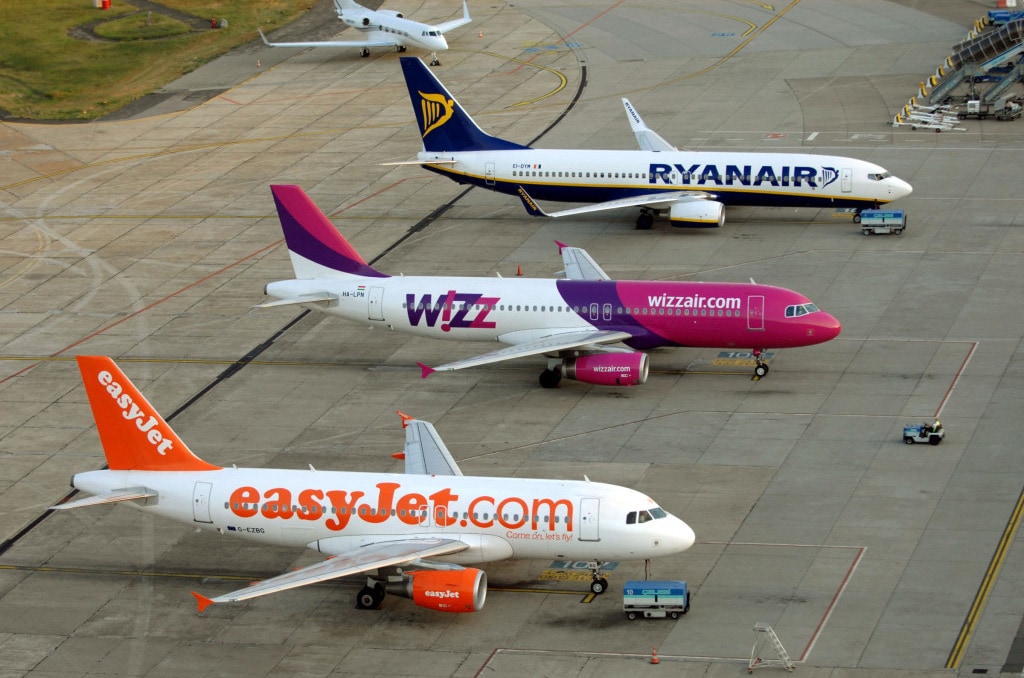Now What? Airlines Navigate Post-Brexit Economic and Political Uncertainty
Share

APEX Insight: The aftermath of Brexit has seen airline stocks plunge by as much as 30 percent and airfare reach a record three-year low €” now airline CEOs are voicing intentions to diminish UK routes. The industry will face an uncertain future until the UK government invokes Article 50 of the Treaty on Lisbon, triggering the official start of its withdrawal from the EU, a process that can take up to two years – and, even then, it will take time to adjust to the new normal.
As the dust settles just over a month since the UK voted by a narrow margin to leave the EU, the aviation industry is still struggling to find its bearings – much like the country itself. Since June 23rd, Prime Minister David Cameron resigned, Theresa May was sworn in as the newest British leader and the British pound nose dove to a 31-year low.
Last week, chief executive of easyJet Carolyn McCall said Brexit had already resulted in a $50 million deficit for the low-cost carrier (LCC) thanks to the weakening of the pound, which is now trading 10 percent below its pre-Brexit peak; the currency drop is strenuous on easyJet because it pays for fuel in US dollars. Delta Air Lines has also cited currency volatility as the reason for its $40 million loss: “With the additional foreign currency pressure from the steep drop in the British pound and the economic uncertainty from Brexit, Delta has decided to reduce 6 points of US-UK capacity from its winter schedule.” Before the reduction, flights to the UK accounted for 2.7 percent of total capacity at Delta, and 5.3 percent for United Airlines, which has also released plans to reduce winter capacity, by decreasing the number of flights and size of aircraft from Washington Dulles and Newark.
“The UK’s decision to leave the European Union has led to a notable weakness in fares on routes to/from the UK mainly due to the much weaker British pound.” €” Spokesperson, Wizz Air
Back across the Atlantic pond, Hungarian low-cost carrier Wizz Air has decided to halt plans to expand its presence in the UK by 30 percent, instead opting for a 15 percent boost. At the release of its first-quarter profit results, a spokesperson for the carrier said, “The UK’s decision to leave the European Union has led to a notable weakness in fares on routes to/from the UK mainly due to the much weaker British pound, which is currently 19 percent lower than the same period last year versus the euro. Wizz Air has already started readjusting its network due to this weakness and halving its intended second half growth to the UK and redeploying this capacity to other non-UK routes.”
Meanwhile, Ryanair, a major proponent of the Remain campaign, called the Brexit vote a “surprise” and a “disappointment,” in a statement released earlier this week. The low-cost carrier’s CEO, Michael O’Leary, announced that the airline is planning to cut capacity and frequency on routes out of London Stansted Airport this winter in response to the vote, but that no routes would be entirely removed. The CEO expressed intentions to “pivot our growth away from UK airports and focus more on growing our EU airports over the next two years.”
“In the meantime, we will pivot our growth away from UK airports and focus more on growing at our EU airports over the next two years.” €” Michael O’Leary, Ryanair
The economic slowdown catalyzed by the referendum isn’t only hurting carriers, but also a British public who is becoming increasingly reluctant to travel overseas. A report published by the International Air Transport Association (IATA), which considered the potential impact of Brexit on outbound UK air travel, concluded that the forecasted economic downturn could trigger a slowdown in the overall growth of UK air travel by 3-5% by 2020, when compared to predictions for an EU-bound UK.
But it isn’t all bad: “Although every airline is having a tough time, it is very good news for passengers,” McCall says. For one, a weaker pound means a stronger American dollar and greater appeal of British tourism. And, as carriers scramble to fill their cabins amid escalating security scares, airfare from the US to Europe has hit a three-year low, and is approximately one third cheaper than last year, according to a study released by airfare tracking app Hopper.
“It is worth pointing out that although every airline is having a tough time, it is very good news for passengers.” €” Carolyn McCall, easyJet
Discounted prices have been a boon for American tourists, but analysts predict they will be short-lived. Hopper’s study notes that the June 23rd vote may exclude the UK from the European Common Aviation Area, which would reduce competition – by increasing restrictions on UK-based carriers – and lead to an upsurge in airfare. In addition, if the UK chooses to introduce more stringent boarder control measures as a result of the vote, London may lose its pull as an attractive air transport hub. As IATA has said, whatever the outcome of post-Brexit regulatory negotiations, officials will need to ensure that “there are no steps backward for aviation connectivity.”


